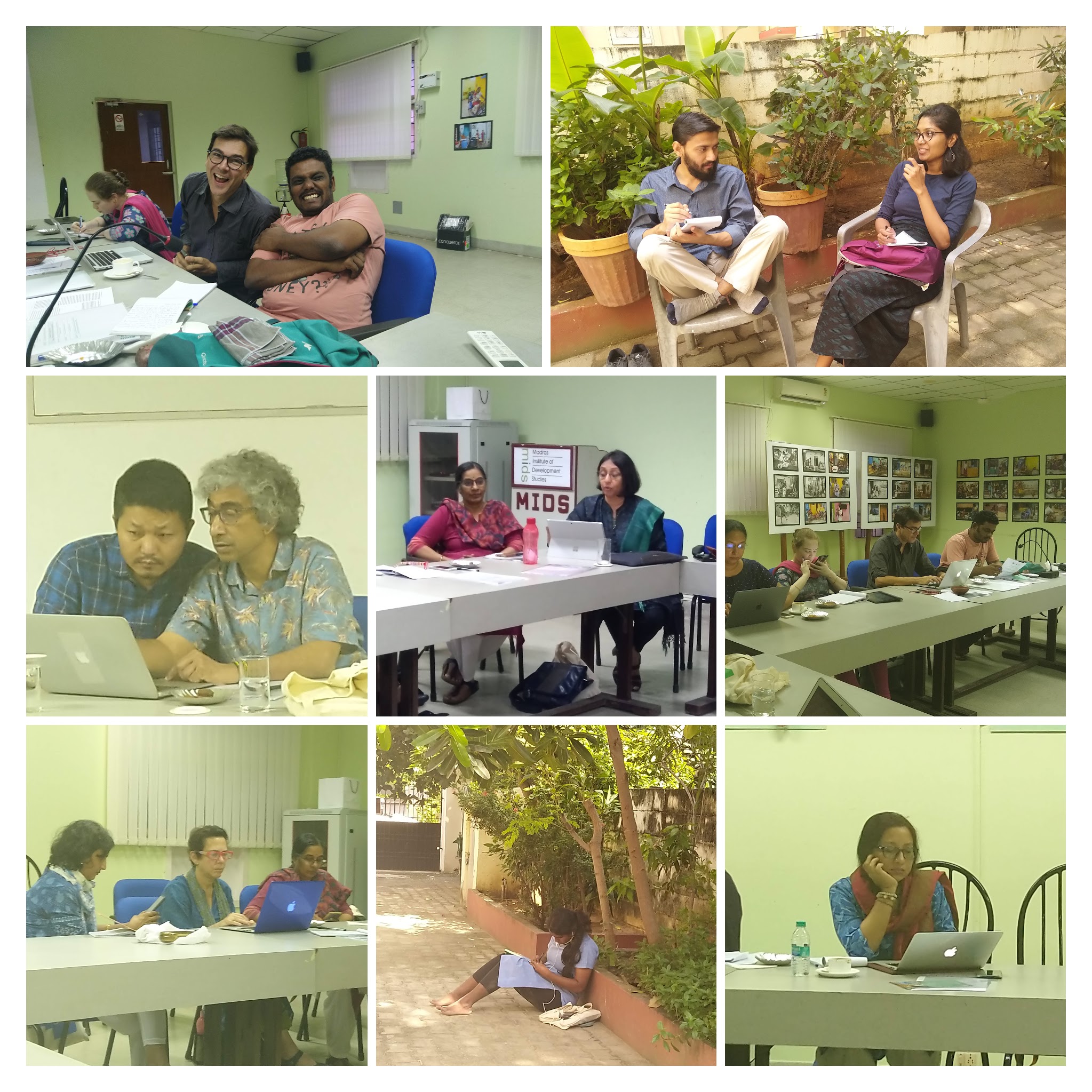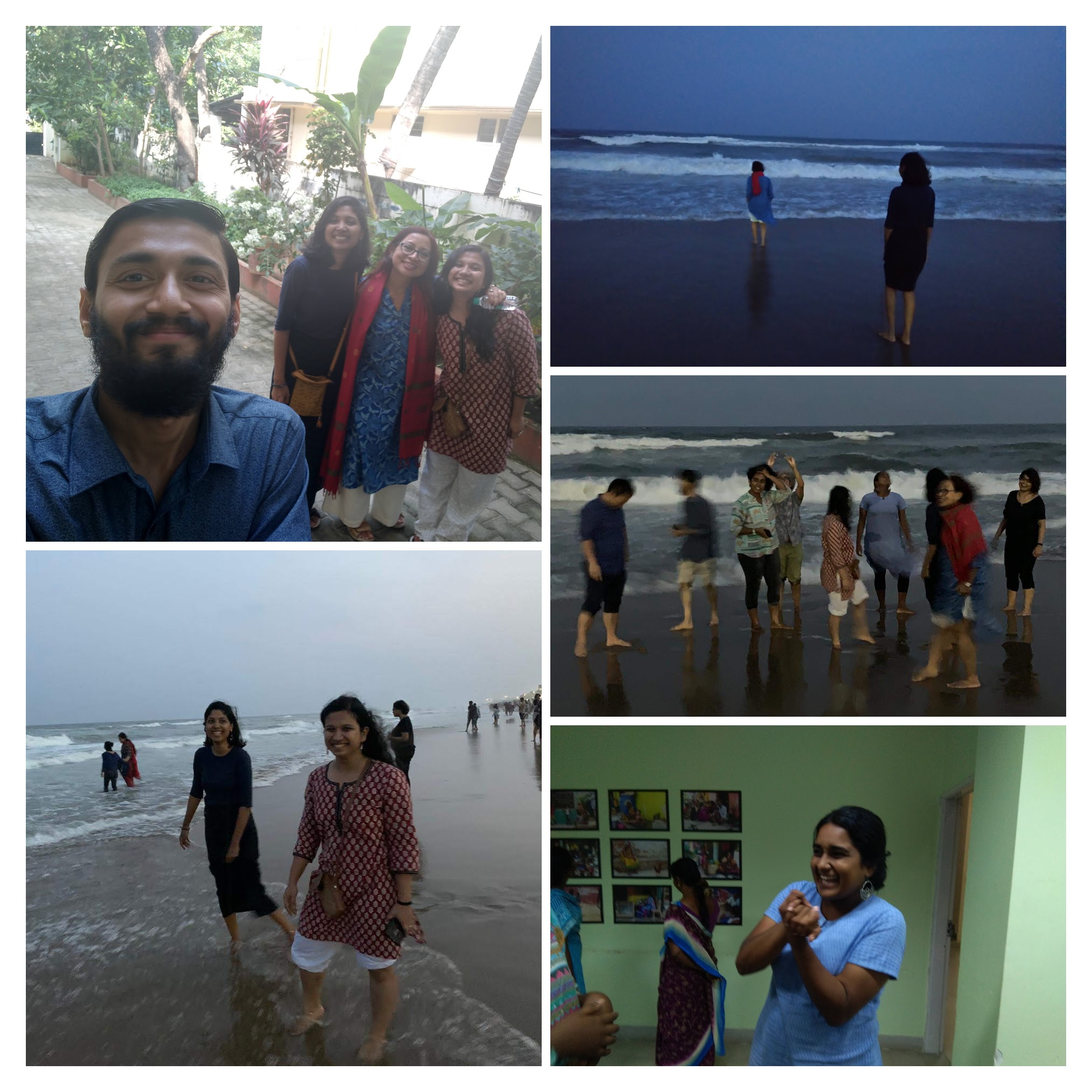Blog

- Report
Day 2 of the Storytelling & Writing Workshop, Chennai
This workshop was a different workshop. We were practically engaging in the workshop. I’ve been a history student for the last five six years…But this is the first time that I’ve been involved in practice of writing and storytelling and did a write up. My onion story came up from a write up. The workshop helped in understanding very clearly how to organise the data…how to categorise data … how to relate it in interesting way.
Bharathidasan. K., Research Scholar (dalit social history), MIDS
The stage
The Day 2 of the workshop started on 20 December 2019 with the theme of Reading/Writing/Re-writing/Telling/Re-telling using prompts. While many of us have been using storytelling as part of our research, methodology or trope, it is never easy to write. A constant engagement in the medium along with routine work has a way of tiring the hands and creative thinking. After the end of first day we were curious about what was going to take place on the second day. Reading a schedule and experiencing it are two different things entirely.
Session I: Reading/Writing/Re-writing/Telling/Re-telling using prompts
In the first session, the three conveners – Wendy, Aarti and Anandhi gave us various options to write a story on our own using the prompts given to us in 250 words. In the first option, we could use any one of the four articles given as pre-workshop readings and re-imagine it in context of our work or way of thinking. In the second, to write a personal narrative using a personal object that we were asked to bring. In the third, to choose one of the photos from Yazhini’s exhibition and write how it spoke to us. Reading of the schedule and hearing the instructions did alarm most of us. We went off to different spaces, some in solitude and some in company of friends.
When after an hour or so we gathered at the auditorium, we were still unsure and maybe insecure. But as Mesha shared, “listening to what everyone else had written felt like a very intimate exercise, with people sharing a piece of their selves with a group of people they barely knew,” we were taken by surprise at what we heard and what we wrote.
As we successfully made the transition to the experience of the schedule of the workshop, Simi shared, “this session gave an idea about creative presentation in a context.”

In session I for each one of the options, we were asked to re-image our choice of medium in a more creative way and write about it in the context of our work. As we broke up for another round of sumptuous lunch, each one of us was surprised at ourselves and those we were familiar with through the stories that were shared.To read the texts or stories, explore the 'Read more' tag below.
Session II: Through the lens
In the post-lunch session a documentary, My Caste, by Amudhan R. P. was screened. A documentary about personal caste experiences of different people from different backgrounds, it attempts to question the silences, claims, compromises, deeds and ambiguities regarding the take on Caste.
The end of the documentary was met with silence before someone thought of clapping. The silence was discomforting, disconcerting and thoughtful.
The screening was followed by an hour-long discussion on the issues related with caste, caste discussions in Tamil Nadu and the technical aspects of the film. For some this documentary and the workshop were the first true exposures to how the issue of caste is deeply embedded in Indian society.
And for many it led to sharing of personal experiences of differentiation based on caste and gender.
The documentary resonated with many of my own experiences of caste as an upper caste woman in daily life! ... Be it family or professional life. The discussion that followed got many thinking about how caste operates at an everyday level. It made us realise how little the north knows about the south or the south about the east and same thing around. This discussion gave us an opportunity to discover and learn from the various ways in which dialogues have been initiated in Tamil Nadu. - Mesha Murali
My insights about caste and caste discrimination got a new framework. It shed light to my entire notion about caste. - Simi Thomas
It left us with a lot of questions, angst and insights on how caste operates in our everyday life. The documentary itself is an example on the importance of documenting countering narratives to the State written history. - Vinitha Jayaprakasan
Most of the participants were from academia; and the exercise of Reading/Writing/Re-writing/Telling/Re-telling using prompts to tell a story was a breakthrough. The tool of re-imagining an article and connecting it with one’s own work helps in extending the space within which one tends to remain while writing. While this tool, like the word-concepts, has the ability to bring out multiple perspectives, it leads to reading a text or an image deeply and associatively.
The workshop by the end of the second day was snowballing its impact. The day ended with us expectantly wondering about what was to follow. Post-workshop, friends, some old and some new, went to Elliot's Beach for experiencing another aspect of the city.

The four pre-workshop readings materials circulated were
Kawlra, Aarti. 2016. “Recipes for Re-enchantment: Natural dyes and dyeing”. Marg, Vol 67 No. 4, pp. 78 – 87.
Pandian, M. S. S. 2005. “Void and memory: story of a statue on Chennai beachfront”. Inter-Asia Cultural Studies, Vol 6 No. 3, pp. 428-431, DOI: 10.1080/14649370500170118
S., Anandhi. May 4, 2013. “The Mathammas: Gender, Caste and the Politics of Intersectionality in Rural Tamil Nadu”. Economic & Political Weekly, Vol XLVIII No. 18, pp. 64-71
Singer, Wendy. June 2018. The Watering Van Incident: Madras 1932/Chennai 2012. (due for publication)
Read more
- Log in to post comments


